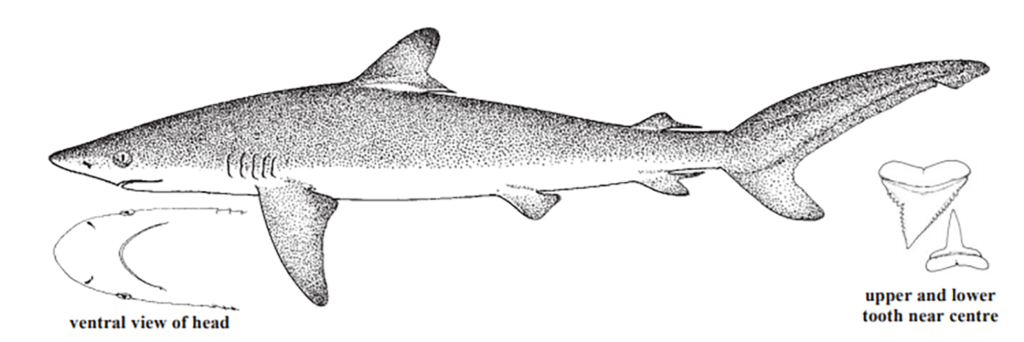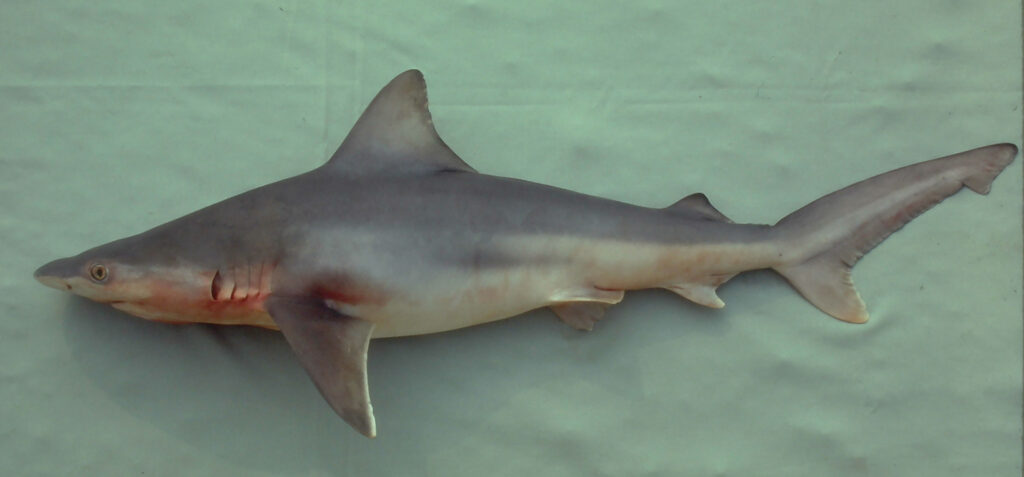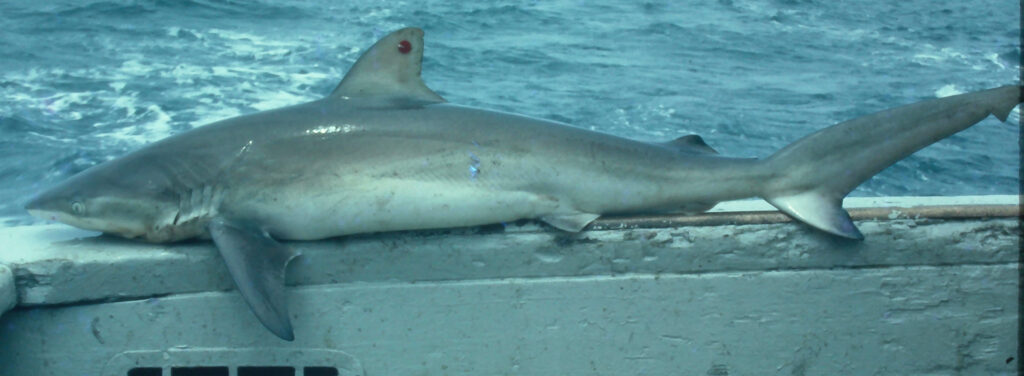
Source: FAO 2002
| Family | Scientific Name | Author | Year | Common Name |
| Carcharhinidae | Carcharhinus falciformis | (Müller and Henle) | 1839 | Silky Shark |
All Carcharhinus — Upper labial folds short to rudimentary, almost vertical at mouth corners. Spiracles usually absent. Lateral keels usually absent. Second dorsal fin considerably smaller than first, height 0.2-0.5 times first dorsal-fin height. Midlength of first dorsal-fin base usually closer to pectoral-fin insertions than to pelvic-fin origins, sometimes equidistant between pectoral and pelvic-fin bases. No gill rakers. Back grey, blue-grey, or brownish. Preanal ridges very short or absent.
Carcharhinus falciformis
Unique Characters: Body slender. Pectoral fin long and narrow. First dorsal-fin origin well behind pectoral-fin free rear tips. Interdorsal ridge present. Pectoral and first dorsal fins tapering distally and usually pointed or narrowly rounded. Fins not mottled white, often black tipped but without black saddles on the caudal peduncle. Very coarse serrations or small cusplets on feet of upper anterolateral teeth. Inner margin of second dorsal fin very long, usually over twice fin height but occasionally down to 1.6 times fin height.
Similar Species:
Sandbar Shark
Carcharhinus plumbeus
Dusky Shark
Carcharhinus obscurus
Sandbar Shark Carcharhinus plumbeus. Heavy bodied. Large first dorsal fin begins above middle of pectoral fin. Interdorsal ridge present. Pectoral and first dorsal fins tapering distally and usually pointed or narrowly rounded. Fins not mottled white, often black tipped but without black saddles on the caudal peduncle. Serrations on feet of upper anterolateral teeth small and fine. Inner margin of second dorsal fin shorter and generally less than twice fin height.
Dusky Shark Carcharhinus obscurus. Large body. Smaller first dorsal behind pectoral fin. Interdorsal ridge present. Pectoral and first dorsal fins tapering distally and usually pointed or narrowly rounded. Fins not mottled white, often black tipped but without black saddles on the caudal peduncle. Serrations on feet of upper anterolateral teeth small and fine. Inner margin of second dorsal fin shorter and 2.1 times in fin height.
Gallery

